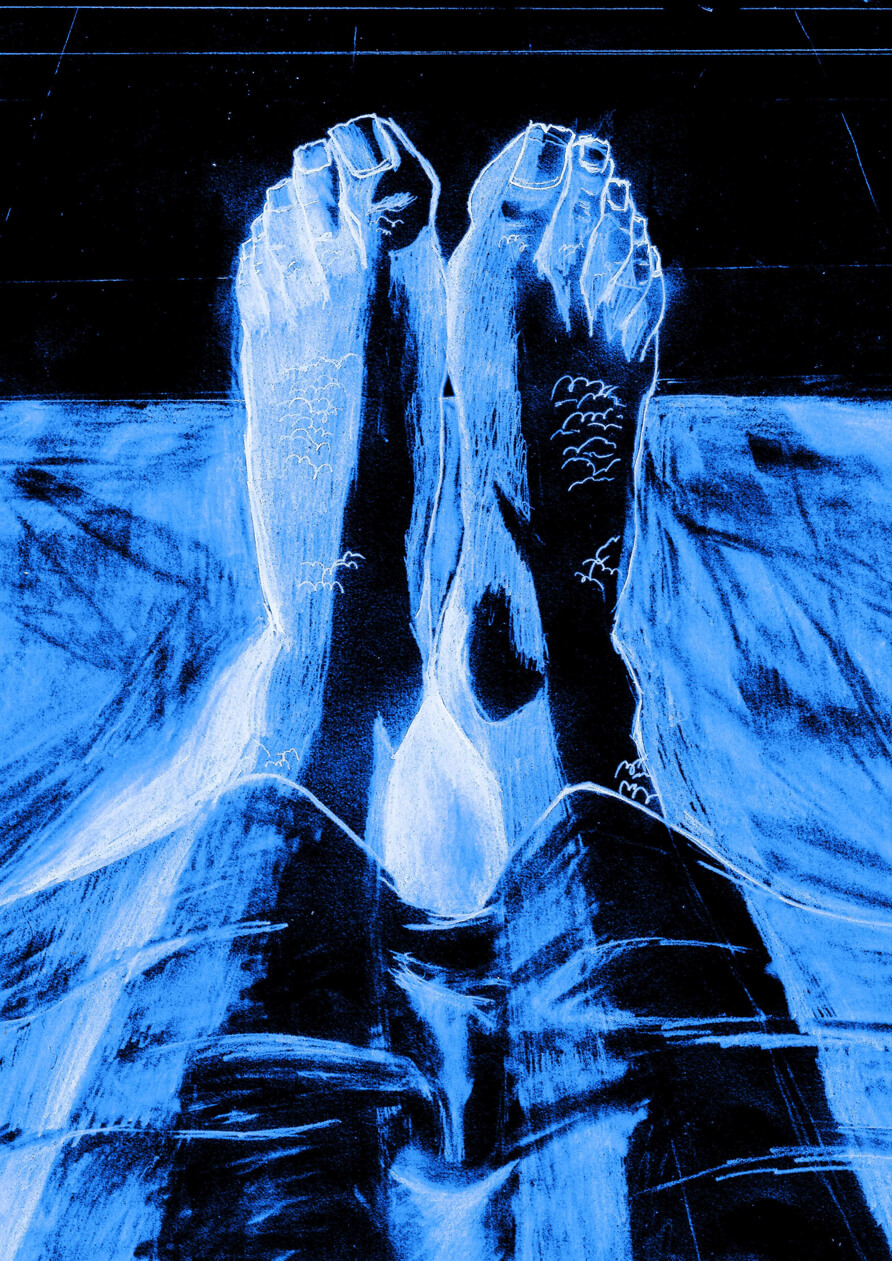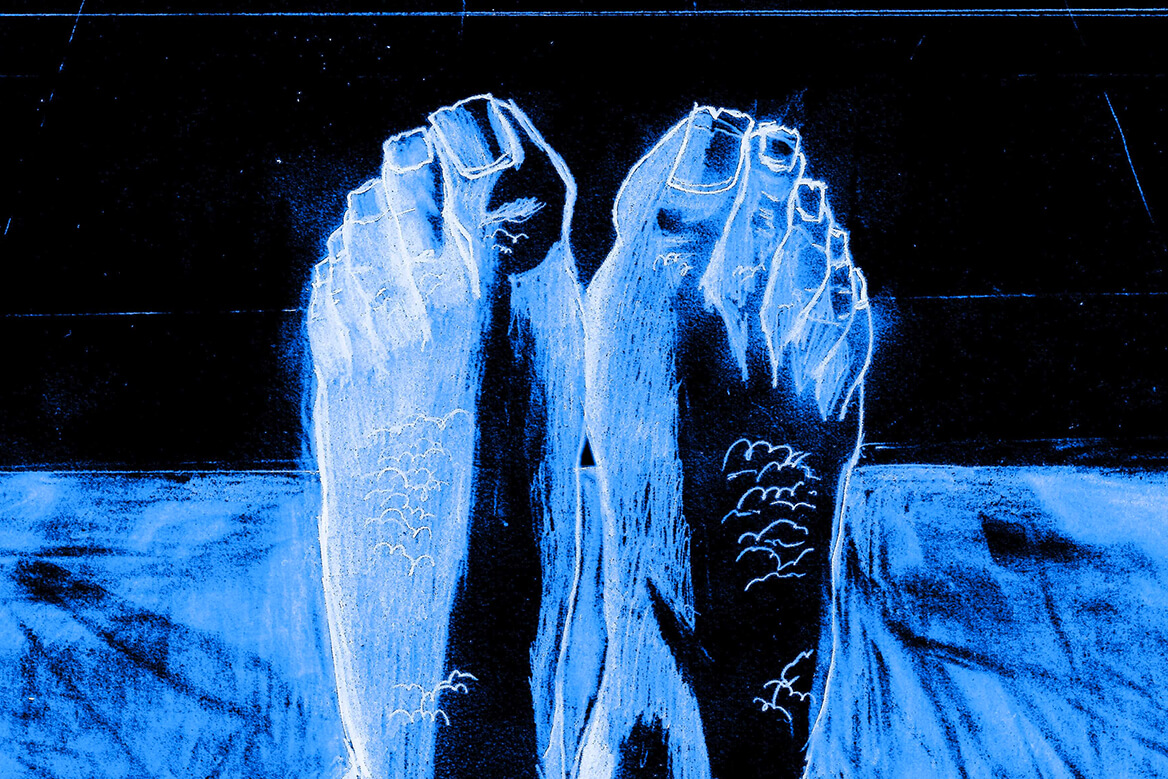Please note: this story was provided by the author and published as is.
As children, we are taught many things. A good many of which we will choose to unlearn, a good many of which we never properly learned in the first place. This is what I found I had to do in the case of the mortuary on Cabbage Lane. Funeral homes and morgues are places that, in the eyes of my close family growing up, ruined the mood of the street. I myself didn’t see the harm in it, but I chose to accept their deduction for what it was, and nothing more. There were certain times throughout my childhood in which it became necessary for my family to take up the mortuary’s local services, but I myself never set foot in the place. My great grandfather’s wake was on a Wednesday, and Midnight Radio was on.
This was all before I saw it for what it truly was, saw how juvenile it was to think of it any other way. A caravan of jewels sits surrounded by thieves uninterested in its riches, and I have it all to myself.
I work there now, on Cabbage Lane. Aladdin in the cave. Isolated from my family and any scarce companions I once had, simply by the way I choose to conduct my profession. Yet I can honestly tell you that I feel very surely and sincerely that I have found my true happiness. When people experience the death of a loved one, it is quite common to look, yet many never actually see. They are not moving, no, or breathing, and their heart is not beating. You may think it’s a fluke; after all, hearts stop and restart often in medicine, comparatively speaking. Yet what if you were told: this person is dead? Medicine and machines confirm to you, and doctors tell you, and all you know is your own feeling. But have you ever gone outside and looked? Looked at the mortuary on Cabbage Lane? If it were not for the sign naming the place’s point and purpose, you might suppose that it is just like any other building. Perhaps a day school, stewing with deliriously bored children, or a drab little church. You look, but you do not see.
Have we now gotten into the habit of stamping things dead or alive, and simply leaving it at that? What is there to confirm to you that the mortuary on Cabbage Lane is not as brimming with life as any other place, as the very room you are sitting in?
Have you gone outside and looked?
People do not look, not when they think they are hurt. They think their loved one has passed, and all they seem to do is misunderstand. It is rude to take advantage of dumb people, so I was always told, but my job can be quite difficult for that very reason, you must understand.
It is not, however, difficult, to convince a family to opt for a closed casket funeral service.
They are, like most, unnerved by death, and all I need do is tell them the facts about the way things operate, and that is all! Their desires to see their loved ones whole for the very last time are extinguished. For they aren’t whole, really. The air of disdain that even their most trusted ones have now placed upon them-the prejudice of “death”-will assure that. No matter where you believe the soul travels, I can assure you those bodies are never going to be whole thanks to this dreadful taboo, no matter how I choose to conduct my profession.
I tell most clients that embalming is an invasive procedure, which it is. Blood is removed and replaced by chemicals injected into the organs and circulatory system. Eyes will flatten like raisins, and I inject plastic into the eye to shape it back up. Lips are sewn shut or glued from the inside.
I tell them that modern crematories are set at approximately 1800 degrees Fahrenheit; a very warm and sleepy room. The remains are so small and dusty that they get absolutely everywhere, my clothes most often, since I am usually the only person in the building when cremations are being conducted.
I’ve never needed to say more than that, they are so easily convinced. They are dumb, essentially, and they need comfort, as dumb people do. I am excellent when it comes to customer service, better than most, and certainly those in my profession. You see, that is how fulfilled I am with my profession; I simply manage to go under and beyond without a second thought, despite the seemingly dire circumstances. Yes, the families are also usually in great deals of pain, tears strewn about, all that. Not to mention that if it has been a particularly busy season, there will be a certain smell. So many people lay on wooden boards downstairs, on stretchers, and if we’re short of staff, we can’t bury them immediately. Naturally they will begin to rot. Naturally there will be a certain smell of death.

Art by Anonymous
This I don’t tell the families, though. This I see they already smell, and it only serves to exacerbate their pain. So they cry more and they wail more and all they want to do is leave and get away from the death smell. They listen to anybody with a steady voice in those moments, and I think that’s quite alright with me.
For they aren’t whole, really. They’ve lost someone forever now, and have themselves been tainted by the prejudice they have chosen to impose on others, others they really believe they have lost. No matter where you believe the soul travels, I can assure you that at the very least, that is what the living and the dead have in common, the inescapable taint. In the process of living, we die to an extent each time we accept that we have lost another. Each time we feel this imposed pain and loss, a piece of our self is broken.
A true sin, in my opinion, to feel such loss for the deceased. All that is managed, time and again, is to taint ourselves and the deceased by ascribing this label of death to them, of stigma. What good reason is there for them not to be alive? Can you ever honestly say with absolute certainty?
Have you gone outside and looked?
This is why I will not feel sorrow about what I do. This is why I will not feel broken. What I do, you must see, is give life to those who have lost all acceptance from their former loved ones for a crime they simply did not commit. I save souls, and shield myself from sin in return. I go outside, and I look, and the heavens stare right back at me and call my name. Can you ever say the same?
The most recent was a child, a little girl caught with her aunt in a terrible car accident. Before her, an old maid at the Holiday Inn down the road. Sue Anne, she was called. I’d stayed there a few times, and she’d always found something nice to say about my clothing choice of the day; pointed out a new haircut I hadn’t even gotten. She had such pristine eyes, looked upon me with a kindness I have rarely encountered amidst countless faces of aloofness and disgust.
I can recall a particularly irritating case from a few months ago; a lawyer named Edward. It is a rare occurrence that I look upon a corpse with such distaste. Fragmented and lost as they are, the profession is all about redeeming them, no? The man was stout, coarse-skinned, diabetic, with a rosy-cheeked and chubby face. His blood, though, was an O+; universal. Blood is good. Blood is giving. So that is what I took. I truly am an optimist in that sense.
These people, in at least one person’s eyes, are not figments of the morbid or grotesque. They are not wives, husbands, children, or parents tinged with the lyricism of an Edgar Allan Poe poem.
They are bursting with new life, abounding with potential. I do not long to tell anyone of the way
I choose to conduct my business with the broken, with the not fully whole, yet I feel as though if I tried to, I would not be met with understanding. The deceased are so often treated like waste and morgues like landfills, and I know I would be treated just the same if I spoke of my private work in the way I should. It is possible I already am. Dismissed, seldom spoken of, chilling, but a zelig in everyday life nonetheless. It is because I am so like these deceased that I can give them a chance at a new life, at a redemption.
must be clear, though, for my own sake of evading sin, in saying that I am not a perfect man. I am only mortal, and I make my decisions accordingly, and always have. It has always been the greatest burden I bear; to be so mortal and incapable of being rid of this life of casual sin and mistake. I will admit also that I could sit here and announce to you that my good deeds all descend from the generosity of my own heart, or my passion for curing the suffering of the deceased. While such reasoning is quite true in its own right, there is a self-improvement element to my work, and it is only godly to admit such a thing. Even Cronus himself attempted to eat Zeus, his own son, upon hearing that one day he might be dethroned by his children.
But that is the most absurd thing I’ve ever heard. I don’t conduct myself with the deceased in the way which I do because I fear they are in any way going to outdo me. Rather, as I said, I see the best in them, and I refuse to assign them the taboo so carefully doled out by others, even the ones they most love. They claim to love those they have lost, but where is this love? You want no part of their bodies now that they’re gone to you, and in that absence you have received all the despair you have earned.
My profession, both private and public, is my sustenance. Spending days amongst these bodies, I can at times almost hear their life’s thoughts drifting in the air amongst me. Any ailment or sickness I have, a day at the mortuary on Cabbage Lane seems to cure. Any negative thoughts about myself or my good work, and their presence seems to speak to me, seems to reassure me. What I do with them is my fuel and nourishment, truly. When was the last time I took a trip to the grocery store? The bodies on Cabbage Lane are a kind of living nutrient to me.
Or, not so living.

